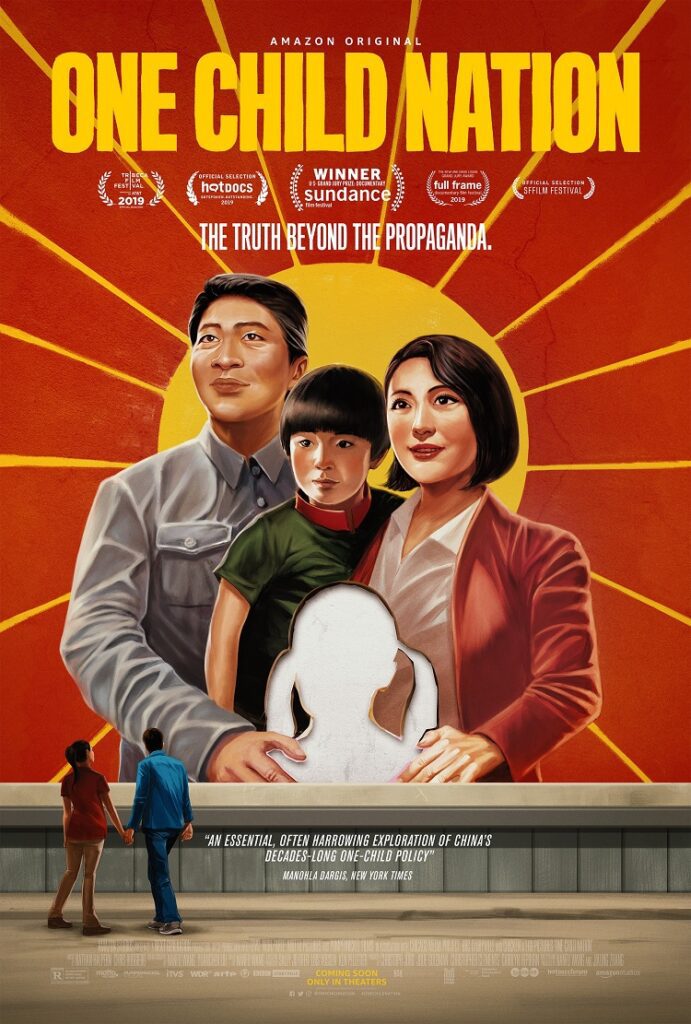
Written by Ram Venkat Srikar
The more brutal and tragic our world gets, the deeper and interesting the films based on it get. It is cruel of me to expect a cold and callous world, but when a filmmaker captures the chaos and catastrophe with purity, we can’t help but immerse into the story.
Filmmakers Zhang Lynn and Nanfu Wang tell a powerful personal story with their own voice (literally) in One Child Nation. The film studies China’s One-Child Policy, which restricted Chinese citizens to have only one child. And more than the policy itself, the film throws light on the aftermath by investigating the melancholy and mourning that followed the path of shaping the nation. Like a note at the end states that all the Chinese crew who worked on the film were born in the One-Child Policy, it’s essentially, Nanfu Wang, as a new mother and citizen of the country, tracing her past and the abhorrent history which she has ignored till then.
The policy was introduced to safeguard the nation from the possible crisis and was a success on statistics. But dwelling deeper and witnessing the ground level reveals that these successful statistics were written with a pen that used tears pouring down from unimaginable horrors as ink. We, the outsiders, have a sparse idea about the past, as the government intended. Just the One-Child Policy paints a whole complete picture of the government and the extremes it took to ensure the nation adapted the policy, and it is not a pleasant picture to look at. The filmmakers capture the aftermath of the horror and its ripples with utmost honesty without adulterating the ruthlessness underneath. The film describes how pregnant women were confiscated and aborted against their will. Millions of women faced the same fate, not a small number to count. When the Nanfu Wang meets a woman, who worked as a government official back in the days handling thousands of abortions, we see that she is suffused with extreme guilt and grief. At present, she tries to cure infertility in men and women, to get rid of her sins. This unmasks the human face of these government officials, who faced the loath of ordinary people, due to the terrible they did. Wait, for the awful things they were forced to do.
Not just that one woman, we meet many such people, on whose lives the policy left permanent scars. The film also marries the policy with the county’s obsession with male children and rancour with the birth of a girl child, touching this through her own family. Right when I felt the film accomplished what it set out to do, the film takes a drastic turn and loops in human trafficking, which has the power to convulse the viewer from within. Human trafficking is the byproduct of ghastly experimentation, which made newborn babies nothing more than disposable living toys. I’d say toys are taken better care of. I doubt anyone would intentionally leave a toy in a meat market. That being said, the last 30 minutes of the film move like a thriller. With commerce making its way into baby trafficking, backed by the policy, it is a disgusting thought to make money of babies, treating them as flesh and blood, but not as a soul. But the filmmakers are unapologetic when it comes to extracting feelings from the people involved. Wang doesn’t spare her own uncle, who left his newborn daughter in a crowded market. More than making a film, the filmmakers coveted to find their roots, and in the process, what we get are emotional conversations that replug the memories which these people were trying to subdue.
A look at the “Finding Report” that holds the details of the babies is the most potent image in the film. Just a paper with pictures of babies the orphanages claim to have found. At the instance, the value of life appears extinct. The shot reminded me of an image from stock footage of the documentary, The Devil Next Door, which displays a gigantic pile of footwear, thousands of it, that belonged to people who were executed during World War II. But that was the darkest period of history which claimed 70 million lives, directly and indirectly. How can we draw a comparison between World War II and a government policy that was supposed to improve people’s lives? Because the policy was a war on its own terms, an internal one. Muzzling the ones with the voice and containing the voiceless, it was a suppressed war which gave no chance for the world to witness and comprehend.
While I’m antagonizing the policy, the Wang’s mother doesn’t. She advises her not to be critical of the policy and also tells that people would have turned to cannibalism. Further backing it up by comparing the living conditions of the current generation to the older ones, she has a case to make; I considered. Yes. It is vital to have a vision and build for the future. But at the cost of destroying homes and exploiting innocent people, just because their family is going to welcome another child? That is the inverse of progress. But, the country has replaced the One-Child Policy with a Two-Child Policy. The banners and wall paintings that promoted the having one child have been repainted with two children. Nothing else has altered.
One Child Nation takes you on a journey with the Wang, and you learn things along. Perceiving the film and policy goes hand in hand. A sequence that shows photographs of fetuses in rubbish is not an easily watchable sequence. But does the photograph depict progress and the future? This question echoes what you take away. And I got my answer.